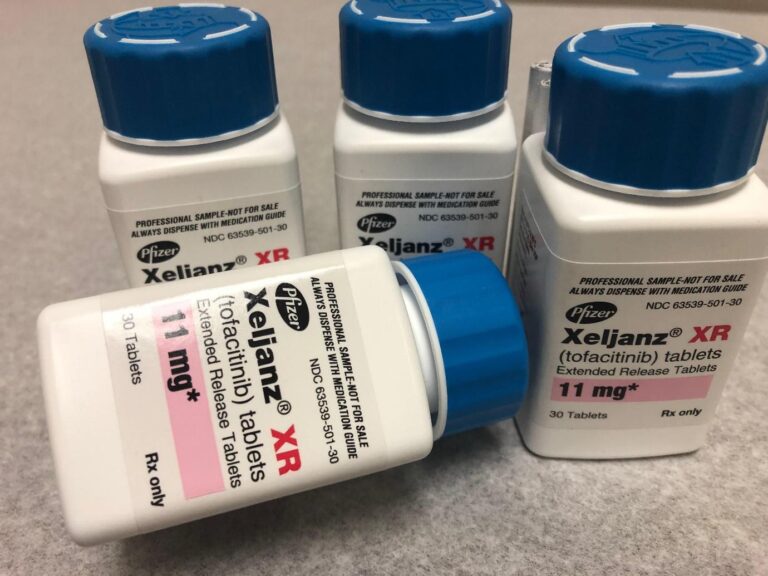Paragard is a non-hormonal intrauterine device (IUD) approved by the FDA which women may use for long-term birth control. However, many women who use this contraception are concerned because they experience acne after its use. Therefore, the question arises: does Paragard cause acne?
Acne is a common skin problem that troubles many women. This often leads to speculation about whether this popular contraceptive could be a contributing factor. Consequently, this article aims to provide reliable information to understand the potential link between Paragard and acne. Let’s dive in and uncover the details!
What Is Paragard?
Before addressing the question, “Does Paragard cause acne?”, you need to know that Paragard is a birth control method that’s been officially approved by the Food and Drug Administration (FDA). It requires a doctor’s prescription and is used to stop pregnancy in fertile women.
This particular IUD stands out as it’s wrapped in a small copper section. Copper discourages sperm from coming into contact with the IUD, preventing them from reaching an egg and thus preventing pregnancy effectively.
While hormonal IUDs might result in irregular or absent periods, choosing Paragard, which doesn’t rely on hormones, allows women to expect their monthly period to remain consistent.
Is Paragard Effective at Preventing Pregnancy?
Paragard is suitable for use by females who have previously experienced pregnancy or those who have not, but conceivable, typically between the ages of 12 and 51. The age range refers to women who can generally conceive from their first period until menopause.
Each Paragard IUD provides contraceptive protection for up to 10 years. If you wish to discontinue its use before this period, your doctor or nurse can remove it. However, its effectiveness diminishes after a decade, requiring replacement with a new Paragard IUD if continued use is desired.
Paragard contains copper, which helps prevent pregnancy by making it harder for sperm to fertilize an egg or by preventing the fertilized egg from settling in the uterus.
How Does Paragard Work?
Dr. Felice Gersh, the author of “PCOS SOS” details how copper prevents sperm from reaching an egg through several methods.
He explains that the way copper works is by killing sperm so they can’t survive. Copper ions released locally affect the lining of the uterus and cervical mucus. As a result, it makes the environment less favorable for sperm survival.
This alteration significantly hinders the sperm’s ability to survive and travel to fertilize an egg. Moreover, copper actively discourages sperm by changing how they swim.
“Once sperm approaches the uterus, copper prompts them to change course and swim away,” Gersh clarifies.
Furthermore, copper disrupts natural vaginal bacteria, further creating an unwelcoming environment for sperm survival. Simply put, copper creates an inhospitable setting for sperm. Later, they modify their movement and survival. This condition prevents them from reaching and fertilizing the egg.
How Do Doctors Put in The Paragard?
At first, a doctor applies a lubricated tool to your vagina. Then, they get the IUD ready by folding its arms and putting it into a tube. After that, they carefully put the tube through the cervix and into the uterus. Once the tube is out, the IUD’s arms open and stay in place.
Additionally, each IUD has a cord that extends from the uterus to the vagina. Your doctor will trim this thread to about one to two inches. Typically the entire process takes less than 5 minutes.
How Much Does Paragard Cost?
Regarding the cost, the expense of a copper IUD can vary based on your insurance coverage. It could be entirely covered by your plan, or you might have to pay as much as $1,300 from your own pocket.
If you’re 18 yo or older with an annual income at or below 200 percent of the poverty guidelines who concerned about the cost, consider the ParaGard Patient Assistance Program. The program offers the copper IUD free of charge if you meet the criteria.
Another option is to contact your local health department, clinic, or Planned Parenthood for assistance. Many of these places offer services based on a sliding scale, adjusting the fees according to your financial situation.
What Are the Side Effects of It?
Despite its effectiveness in preventing pregnancy, it has some typical side effects, such as:
- anemia (low red blood cell count);
- expulsion (complete or partial);
- pain during intercourse;
- extended periods;
- painful periods; and
- vaginal irritation.
Does Paragard Cause Acne?
Regarding the question, “Does Paragard cause acne?”, frankly when compared to other IUDs, Paragard is more likely safe to use because it’s non-hormonal. Nonetheless, it might still trigger acne for many women. Since it’s placed inside the uterus, it causes inflammation that hinders the development of a fertilized egg.
Even though copper IUD doesn’t release hormones, it can reduce the level of zinc in your blood which is a crucial element for maintaining clear and healthy skin. Thus, insufficient zinc in your body can result in acne.
Furthermore, because the copper IUD triggers inflammation in the uterus, it may also cause inflammation in other body parts. Occasionally, this inflammation can stimulate acne in some patients without altering the levels of copper and zinc.
How to Treat Acne Because of Paragard IUDs?
Now that you know the answer to the question “Does Paragard cause acne?”—it doesn’t. However, if you’re facing acne problems while using it, here are some tips to help you!
1. Consume Medication along with IUD
Certain prescribed medicines can help treat acne, even if you’re using a hormonal IUD. Therefore, consult your doctor to find out which one suits you best.
2. Maintain Clean Skin
Having a good routine for your skin is really effective. Thus, wash and moisturize your skin every day. In addition, look for products containing salicylic or glycolic acid, as they work well for skin that’s prone to acne.
3. Sunscreen for Skin Protection
Remember to apply sunscreen! It shields your skin, reducing redness and dryness. Moreover, there are many sunscreen brands available that won’t clog your pores.
So, Does Paragard Cause Acne for the Women Who Use It?
In conclusion, the question “Does Paragard cause acne?” doesn’t have a straightforward answer. It’s possible, but it depends a lot on the body and skin’s condition. Moreover, Paragard itself doesn’t directly cause acne, but it might affect some individuals differently.
Therefore, it’s beneficial to maintain good skincare habits, discuss concerns with your doctor, and consider various suitable and harmless treatments. Consequently, you can prevent acne on your beautiful face while using Paragard or any other contraceptive method.



